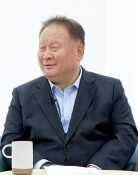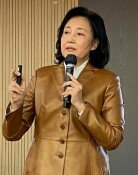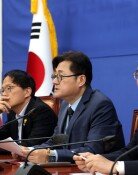National pension fund aims for socially responsible investment
National pension fund aims for socially responsible investment
Posted December. 02, 2017 08:09,
Updated December. 02, 2017 08:23
The South Korean National Pension Service (NPS), the third largest public pension fund in the world, has decided to limit investment in companies that have caused scandals involving toxic humidifier disinfectant or accounting fraud. Let alone not buying stocks of these companies, the state pension operator will consider disposing of its holding in them. The reason behind this decision is that it is all the more important to make sure that public pension funded by taxpayers’ money should not go to corporates who fail to fulfill their social responsibility, than to pursue higher rate of return.
“The NPS, a public fund, has been under criticism for making investments in companies accused of making toxic humidifier disinfectant or committing accounting fraud,” Health and Welfare Minister Park Neung-hoo said at the National Pension Fund Operation Committee on Friday, adding that the state pension fund will discuss ways to promote its role as the nation’s public fund, including set up of an expert committee for socially responsible investment. The expert committee will identify companies negligent in their environmental or social responsibilities, and those with poor corporate governance to give their opinion on investment restriction to the Fund Operation Committee.
The set of specific guidelines has also been introduced. Socially responsible investment, currently accounting for 10 percent of the state pension’s entrusted assets, will be increased to 30 percent in five years from now. This will raise the socially responsible investment of 6.2 trillion won as of July this year, to 20 trillion won. In selecting a trust asset management firm, it will evaluate a company’s socially responsible investment plans or performance. Japan’s Government Pension Investment Fund (GPIF), which outsource all of its stock investment to independent management companies, selects its entrusted firms based on their socially responsible investment performance.
Socially responsible investment is being actively adopted in advance countries. As of 2016, global socially responsible investment increased by 25 percent from 2014. About half of total assets managed in Australia and New Zealand are in the form of this investment.
Some point out that the national pension fund’s possible labeling of companies as bad could hamper business activities. Given the fund’s contribution in the Korean stock market, a mere opinion could have a substantial impact on individual company’s stock price.
“The pension fund’s socially responsible investment will be a means of enhancing corporate competitiveness, thereby not causing much disruption in the market,” said Cho Myung-hyun, head of the Korea Corporate Governance Association. Ryu Young-jae, head of investment advisory Sustinvest, said this approach is meaningful in that it encourages companies to pursue product safety and transparent governance, rather than punishing problematic companies afterwards.
Sung-Min Park min@donga.com







